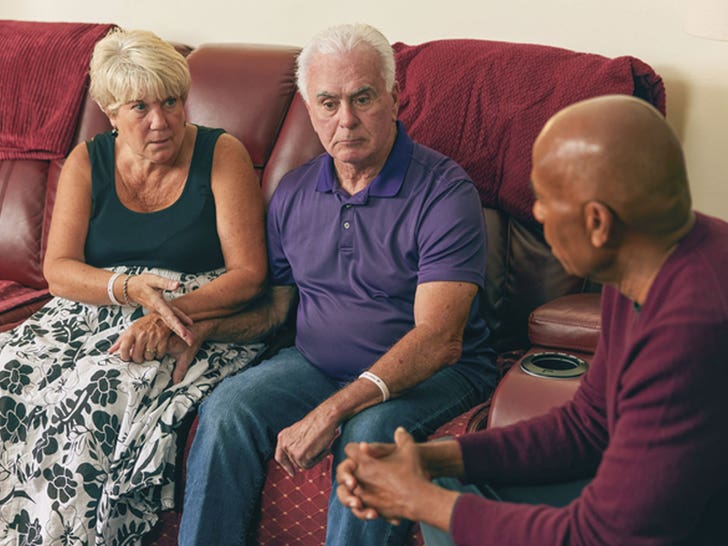The Casey Anthony trial remains one of the most captivating and polarizing legal cases in recent memory. The story itself was undeniably gripping: a young mother accused of murdering her two-year-old daughter, Caylee. As the trial unfolded, public opinion became divided, fueled by media coverage and speculation. One particularly contentious aspect was the use of polygraph tests, specifically the results obtained by Casey’s parents, George and Cindy Anthony, during their own examinations. The results, which suggested they were being truthful about their knowledge of Caylee’s disappearance, were met with skepticism, throwing fuel on the fire of public doubt.

Image: kmatabunga.blogspot.com
The inclusion of the Anthony family’s polygraph tests into the media narrative highlighted the larger debate about the reliability of these tests. While polygraph examinations are widely viewed as a tool for uncovering deception, particularly in law enforcement and intelligence communities, their admissibility in court cases remains a subject of ongoing legal and scientific controversy. This article will delve deeper into the details of the Anthony family’s polygraph tests, examining their impact on the case and the broader conversation surrounding the accuracy of these assessments.
The Anthony Family’s Polygraph Tests
The Tests and Their Implications
During the investigation into Caylee’s disappearance, Casey Anthony’s parents, George and Cindy, underwent polygraph examinations. The results of these tests suggested that they were being truthful about their knowledge of the events surrounding their granddaughter’s disappearance. This finding was presented to the jury during the trial, and its significance was hotly debated. Proponents of the polygraph test results argued that they supported the defense’s narrative, suggesting that Casey’s parents, particularly Cindy, were not involved in the cover-up, a central argument in the prosecution’s case.
However, the polygraph results were met with skepticism by the prosecution and many legal experts, who criticized their reliability and admissibility. In the courtroom, the defense attempted to use the polygraph results to deflect blame away from Casey, suggesting that other family members might have been involved in Caylee’s disappearance. This strategy, however, was met with resistance from the prosecution team, who argued that the polygraph tests were unreliable and should not be considered conclusive evidence.
The Debate Over Polygraph Reliability
The debate over polygraph reliability is not a new one. While polygraphs have been used for decades in investigations and security screenings, their validity as a scientific measure of deception remains a contentious topic. Critics of polygraphs argue that the technology is too subjective, susceptible to manipulation and error. They point to studies suggesting that individuals who are truthful can still register as deceptive, while individuals who are deceitful can be trained to manipulate the results. They argue that the polygraph, despite its name, does not actually detect lies, but rather physiological responses to stress or anxiety, which may be unrelated to guilt or innocence.
On the other hand, proponents of polygraph testing argue that, when administered and interpreted by qualified professionals, the technology can be a valuable tool for investigative purposes. They claim that polygraphs have been proven effective in uncovering deception in a significant number of cases, particularly when used in conjunction with other forms of evidence. They also argue that the physiological responses measured during polygraph tests provide objective information that cannot be easily manipulated, even by experienced deceivers.

Image: crimedoor.com
The Lasting Impact of the Polygraph Tests
The Public’s Perception
The public’s fascination with the Casey Anthony case, and its focus on the polygraph tests, amplified the debate surrounding the reliability of these assessments. The media coverage, with its focus on sensationalism and speculation, fueled public curiosity and distrust of the polygraph technology. Many people were left wondering how a mother could possibly be acquitted of murder after allegedly lying to authorities about her involvement in her daughter’s disappearance. The case, in some ways, became a referendum on the validity of polygraph testing, further intensifying the debate.
The Legal and Scientific Community
The Anthony case also sparked a renewed discussion within the legal and scientific communities about the admissibility and limitations of polygraph evidence in trials. The controversy surrounding the polygraph tests and their impact on the outcome of the trial reinforced the challenges of introducing polygraph evidence in court. Expert opinions remain divided about the scientific validity of polygraph examinations, which continues to raise concerns about whether they offer a reliable measure of truthfulness, especially in criminal cases. While polygraphs may be useful in investigations, many legal experts continue to advocate against admitting polygraph results as definitive evidence in court, given concerns about manipulation, inaccurate interpretation, and the potential for prejudice.
Tips for Understanding Polygraphs
The Casey Anthony case is a stark reminder that polygraph tests, while widely used, remain controversial instruments. It’s crucial to approach them with a critical eye and understand the limitations they have. Here are some tips to keep in mind:
- Polygraphs are not lie detectors: Polygraphs measure physiological responses to stress, and these responses can’t be definitively tied to deception. Factors such as anxiety, fear, and even excitement can trigger similar physiological responses.
- Polygraph results should be interpreted by qualified professionals: The interpretation of polygraph results is subjective, and it can vary based on the examiner’s training, experience, and biases. It’s important to rely on qualified, experienced professionals for accurate interpretation.
- Polygraphs should be used as part of a larger investigative strategy: Polygraph testing should not be treated as the sole basis for determining guilt or innocence. The results should be considered alongside other forms of evidence, including witness testimony, physical evidence, and forensic analysis.
Understanding these limitations is crucial for forming informed opinions about the use of polygraphs and their role in legal cases. The Casey Anthony trial highlighted the potential for bias and misinterpretation, reminding us that while polygraphs can be a valuable tool in certain circumstances, they should not be considered a foolproof method of determining deception.
FAQ
- Did the polygraph tests definitively prove that Casey’s parents were innocent? No, the polygraph tests were not conclusive evidence of guilt or innocence. Polygraph results can be influenced by various factors and should always be considered within the broader context of the investigation.
- Are polygraph results admissible in court? Polygraph results are generally not admissible in court as evidence of guilt or innocence. They are often considered to be unreliable and their admission could be prejudicial to the defendant.
- Who can administer a polygraph test? Polygraph tests are typically administered by qualified polygraph examiners who have undergone specialized training and certification. The American Polygraph Association (APA) offers information about certification and standards.
Casey Anthony’S Parents The Lie Detector Test Streaming
Conclusion
The Casey Anthony case, with its focus on the controversial use of polygraph tests, serves as a reminder of the limitations and complexities surrounding this technology. While polygraphs can be a valuable tool in investigative contexts, it’s crucial to recognize that they are not foolproof and should not be considered definitive evidence in legal proceedings. The debate over polygraph reliability continues, highlighting the importance of understanding the science behind these tests and their appropriate use.
Do you think polygraph tests should be admissible evidence in court? Are you interested in learning more about the validity of these tests? Share your thoughts in the comments!






